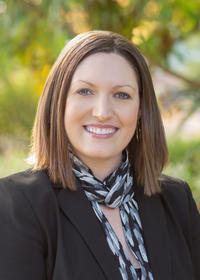Insufficient security in the United States Postal Service, significant amounts of money sent via paper checks in rescue funds during the pandemic, and lack of prosecution of financial crimes have created a trifecta leading to rampant check fraud recently. Check washing scams increased 84% in 2022, according to the U.S. Treasury Department.
Below are some tips to protect yourself from check washing:
- Contact your bank about whether they offer Positive Pay, a fraud-prevention service commonly offered to bank customers. You provide the bank with a list of checks that have been approved for deposit. If a check is presented that doesn’t match the information on your approved list, the bank notifies you and withholds payment until you instruct them to either accept or reject the check. Some banks offer the service for free, while others charge. Positive Pay also protects against duplicate deposits if a check is lost or someone attempts to deposit a check multiple times. Remember that stop-payment orders typically expire after six to twelve months, depending on the institution, although they can usually be extended by request.
- Write checks using black gel ink. It’s more difficult to remove this type of ink if the criminal is attempting to use a check-washing chemical. Here is an article discussing the Better Business Bureau’s suggested use of these types of pens.
- Verify the client or third party’s mailing address before sending them a check. Many people move or change their mailing address but don’t think to notify their attorney, especially if their representation has been lengthy.
- Deposit outgoing mail in the blue collection boxes at your office or inside the local post office by putting it in the lobby mail slot or handing it to a mail employee before the office closes.
- Advise clients and third parties to retrieve their mail frequently and never leave mail in their mailbox overnight. Attorneys should do the same.
- Advise clients and third parties to immediately deposit any check they receive from you and to notify you immediately if a check is lost. If they are planning to use mobile deposit, they should immediately and properly dispose of the check after deposit, such as by shredding.
- Monitor your accounts regularly to verify that checks are being cashed. With your IOLTA account, you should be performing a monthly three-way reconciliation. For more information about proper reconciliation, see our PLF Book about trust accounting.
- Keep your accounting records in a secure location, including checkbooks, canceled checks, and check stubs, among others. See our PLF Book and our practice aid discussing trust accounting frequently asked questions for more information about the types of records you should be keeping. To lessen your chances of becoming a victim of check fraud, keep records in a safe location like a locked cabinet or safe. If you are only keeping digital copies, shred the originals and be sure the digital copies are securely stored. Contact a PLF practice management attorney for tips on secure digital storage.






